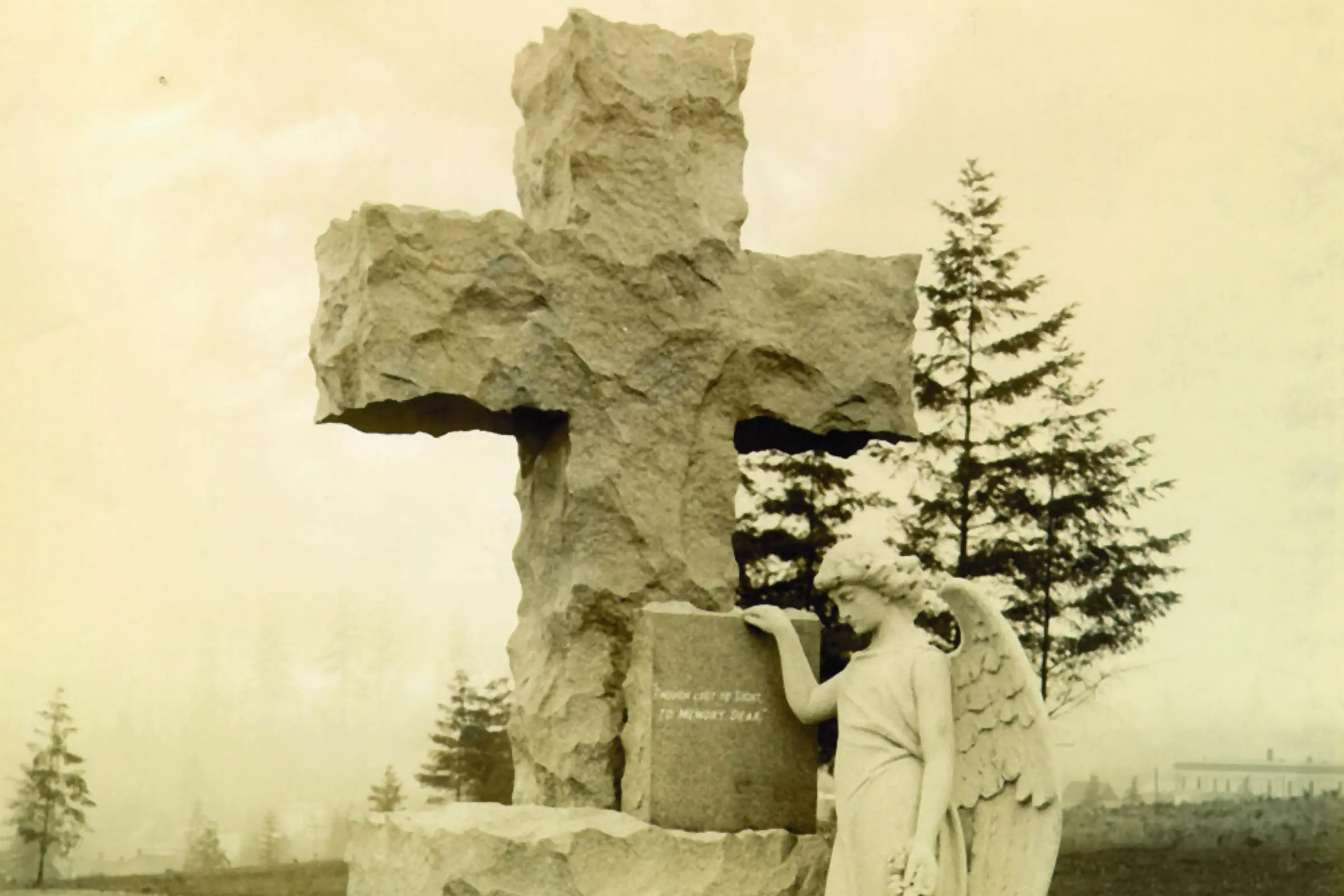What to Do When a Death Occurs

“Peace be with you.” These were the words Jesus spoke to his disciples after his death. They were feeling anything but peaceful at the time, but with these words they began to gain a new understanding of Jesus’ death and resurrection and the promise they gave for everlasting life.
Like the disciples, we too often feel anything but peaceful at the time of the death of a loved one, no matter how prepared we were for it. But also, like the disciples, we have this promise of everlasting life which sustains us and gives us peace in the hope that we will be reunited with those we love.
At the same time that we struggle to understand the reality of death and the hope of resurrection, we are faced with the need to make funeral arrangements. Many of our Catholic faithful find themselves in this experience with little or no prior knowledge or experience. Associated Catholic Cemeteries of the Archdiocese of Seattle has developed this information to assist you in preparing for a Catholic burial.
There are three areas which require attention when making funeral arrangements:
- Liturgical and spiritual questions that are most properly the concern of the pastor and the parish community.
- Procedural matters that need to be addressed at the funeral home.
- Services of the Catholic cemetery.
Decisions regarding these three liturgical moments are best made with the parish ministers at the outset of formulating the funeral arrangements. With these liturgical considerations in mind, arrangements can then be made with the funeral director of your choice and your Catholic cemetery.
Your Parish
While the funeral home might need to be contacted immediately following a death, the first call when actually making the funeral arrangements should be to your parish. Your parish community has trained pastoral ministers available for liturgical funeral planning at the time of the funeral and with post-funeral grief ministry.
Through baptism, all are made one in Christ. Therefore, at the time of our death, each of us is entitled to Catholic burial from a parish community. The family or friends of the deceased simply need to request a Catholic funeral by contacting the parish priest or pastoral staff.
Liturgical Moments
There are three elements of a Catholic funeral, as described in the Order of Christian Funerals:
- A Vigil Service: generally held at the parish church or funeral home. This service has as its focus proclaiming and reflecting on the Word of God.
- A Funeral Mass: celebrated in the parish church with the body present. If cremation is your preference, normally the body is present at the Funeral Mass, followed by cremation.
- The Committal: whenever possible this is celebrated at the open grave or place of interment rather than at a cemetery chapel.
Your Funeral Director
The funeral director provides for the coordination of the three liturgical elements (Vigil, Funeral Mass, Committal) with the parish ministers and the Catholic cemetery staff.
The director also provides tangible goods and services such as:
- casket
- embalming (if requested)
- cremation arrangements (if this is your preference within the Church’s guidelines.)
- filing of legal documents
- obituary notices in newspapers
- cortege escorts
- other professional services
Your Catholic Cemetery
Catholic cemeteries are set apart from other cemeteries in that they are part of the ministry of the Church. They minister to the deceased, the bereaved, the poor and the alienated as well as to local parish communities. Non-Catholic family members can also benefit as they are welcome to use the Catholic Cemetery.
Services provided by your Catholic cemetery include:
- burial site (grave, mausoleum crypt, niche)
- interment/entombment/inurnment services
- vaults, liners, lawn crypts
- memorialization alternatives
Consider Pre-Planning
The time surrounding the death of a loved one is difficult, yet it can be a deeply enriching and faith-filled moment. In order to allow for the proper emphasis on consoling family and friends and growing in faith, it is wise to make as many arrangements as possible in advance. Planning in advance also allows families to make joint decisions free of the stress they would be under at the time of death.
Many liturgical decisions, as well as actual purchase of goods and services, can be provided for in advance of need. Your parish can assist with the selection of liturgical options, such as appropriate readings, other prayers, and music. Your Catholic cemetery has programs that encourage purchase of burial space and services in advance of death. Counselors are available to come to your home to discuss the alternatives which best meet your needs.
All advance decisions should be recorded and kept with other important documents. A designated family representative should receive a copy of these decisions to ensure that wishes are known and followed.
The staff of Associated Catholic Cemeteries can assist you if you would like additional information.

